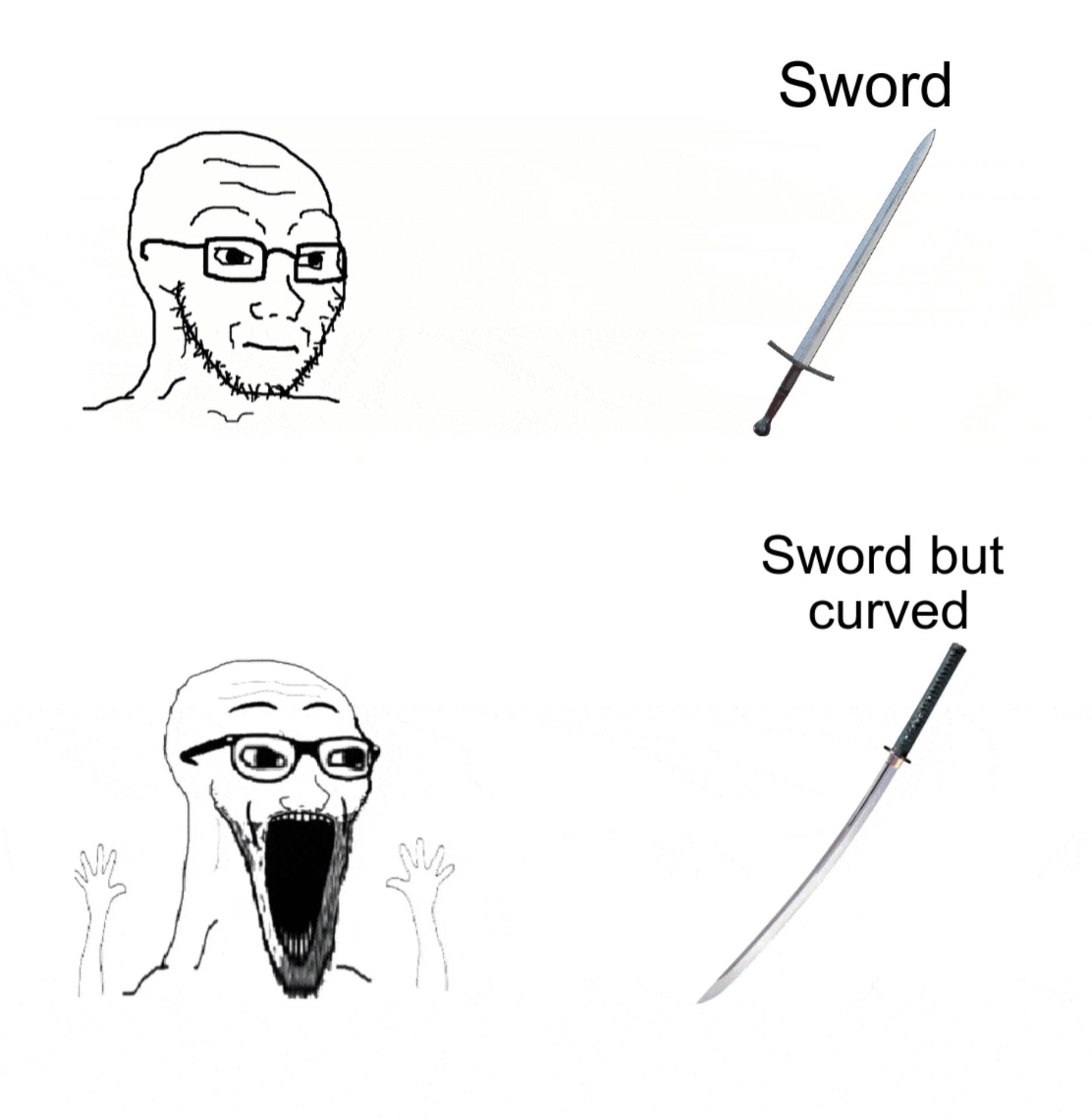this post was submitted on 27 Sep 2024
437 points (96.8% liked)
Memes
45245 readers
1657 users here now
Rules:
- Be civil and nice.
- Try not to excessively repost, as a rule of thumb, wait at least 2 months to do it if you have to.
founded 5 years ago
MODERATORS
you are viewing a single comment's thread
view the rest of the comments
view the rest of the comments

It was probably inspired by Egyptian khopesh since it was used in Ethiopia even before the kingdom of Axum. Thing is, the blade is sharp on both sides. So you could either use its inner side as big sickle to reach around enemy shield and try for the weak spots like neck, face or armpits, or if the enemy didn't had a shield you could turn it to outer side and in this case you it was similar to Persian shamshir in being excellent weapon against unarmored opponents.
Two more interesting thing about it was 1: the designs varies greatly, most were shorter and wider, the curvature also varied; and 2: it apparently worked quite well considering it has been in use for possibly over 2500 years and some Ethiopian emperors even organised special elite units wielding it.
Isn't a khopesh sharp on the other side of the curve from a shotel, though? It seems like sharpening the inside was the big innovation that makes shotels distinctive